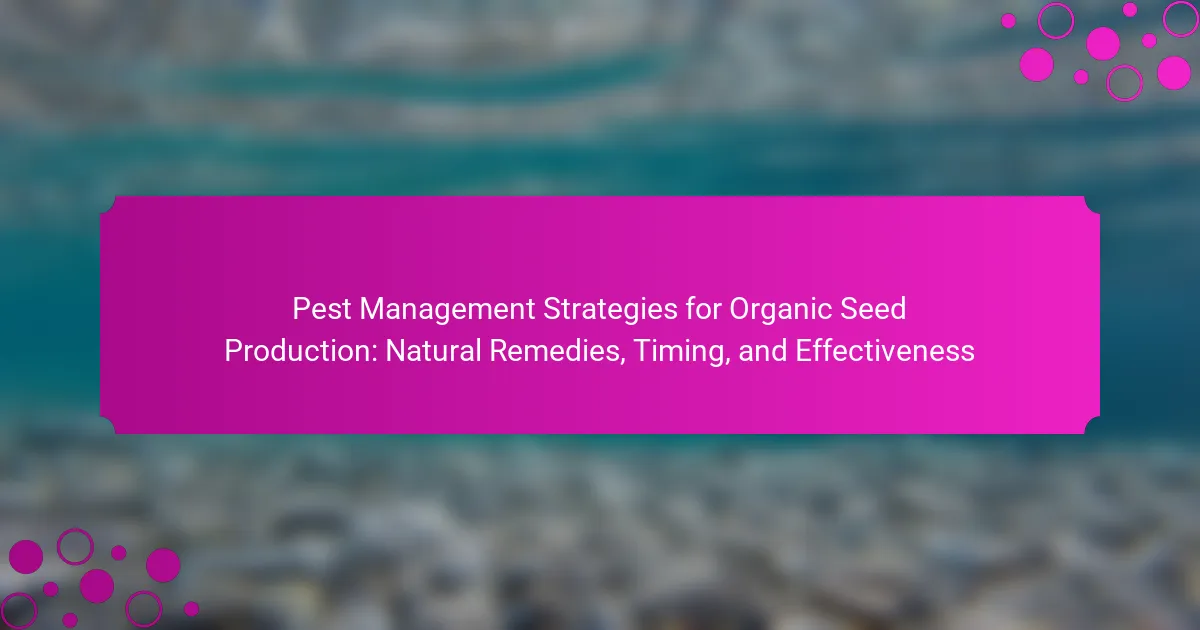Pest management strategies for organic seed production focus on maintaining crop health while minimizing pest damage. Key strategies include cultural practices such as crop rotation and pest-resistant varieties, biological control using natural predators like ladybugs, and mechanical methods involving physical barriers. Natural remedies, including neem oil, diatomaceous earth, and garlic spray, effectively reduce pest populations […]
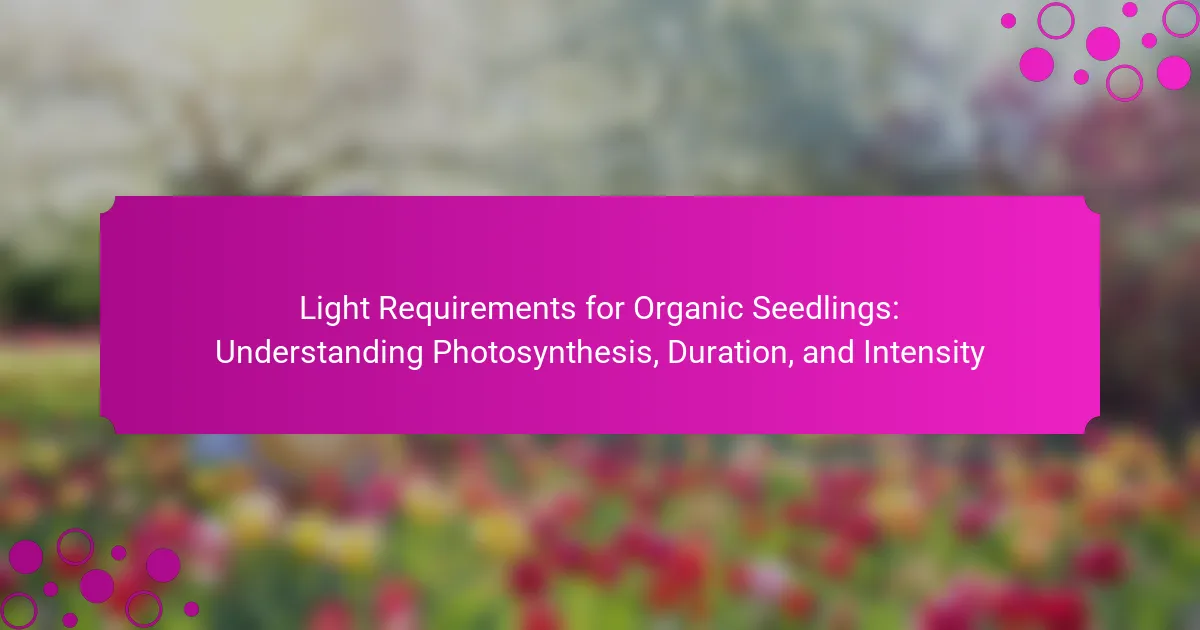
Light Requirements for Organic Seedlings: Understanding Photosynthesis, Duration, and Intensity
Organic seedlings require specific light conditions for optimal growth, including 12 to 16 hours of light per day to facilitate photosynthesis. Adequate light intensity, measured between 200 to 400 µmol/m²/s, is essential to prevent issues such as leggy growth or leaf burn. Various light sources, including natural sunlight, fluorescent lights, LED lights, and incandescent bulbs, […]
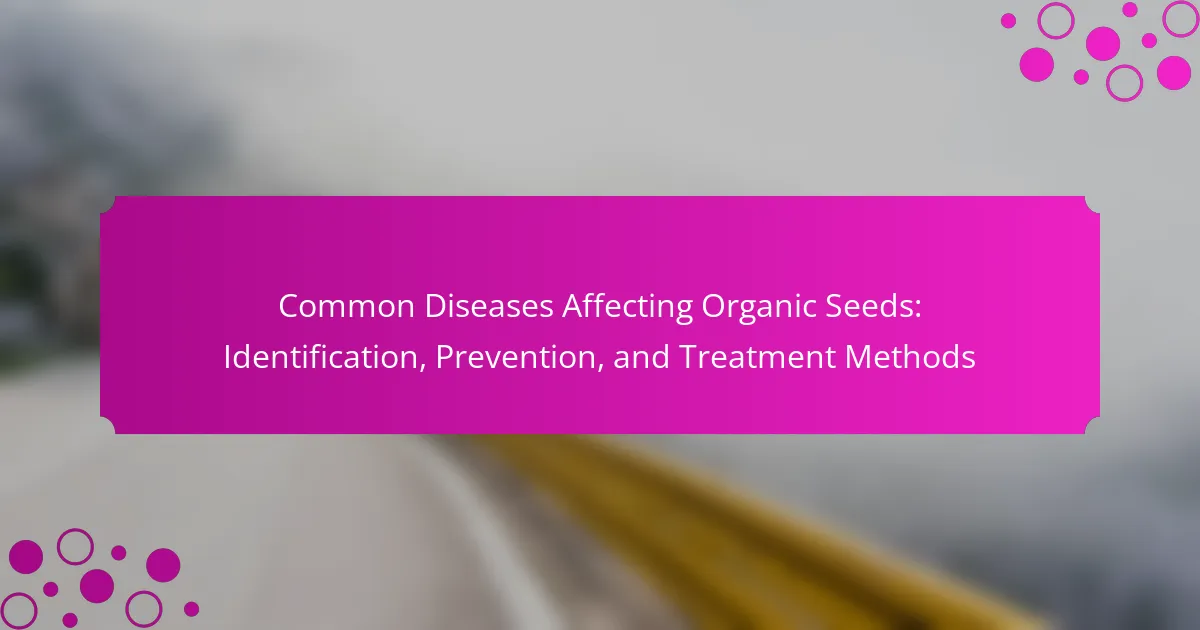
Common Diseases Affecting Organic Seeds: Identification, Prevention, and Treatment Methods
Organic seeds are susceptible to various diseases, including damping-off, seed rot, and downy mildew. Damping-off, caused by soil-borne fungi, can lead to seedling death, while seed rot occurs due to excessive moisture, hindering germination. Downy mildew is a fungal disease that affects multiple crops and can diminish seed viability. Effective prevention methods include using disease-resistant […]
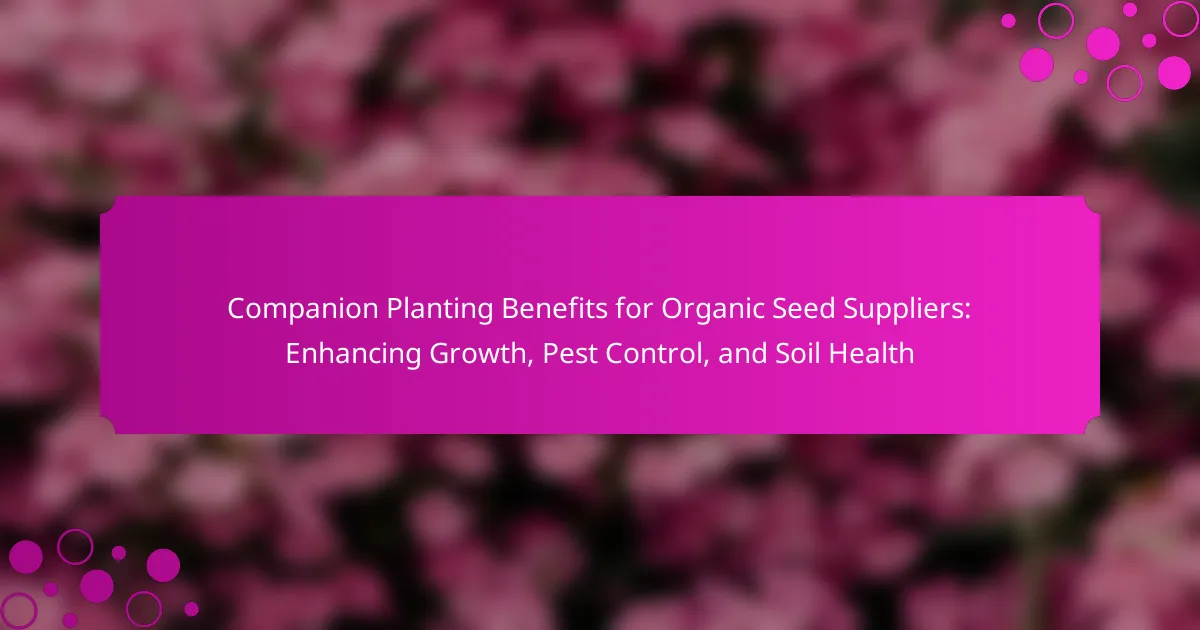
Companion Planting Benefits for Organic Seed Suppliers: Enhancing Growth, Pest Control, and Soil Health
Companion planting is a strategic agricultural practice that benefits organic seed suppliers by enhancing crop growth, controlling pests, and improving soil health. This method promotes nutrient uptake and optimizes space by utilizing specific plant combinations, such as marigolds with vegetables, to deter harmful pests like nematodes. Additionally, companion planting fosters increased biodiversity, which contributes to […]
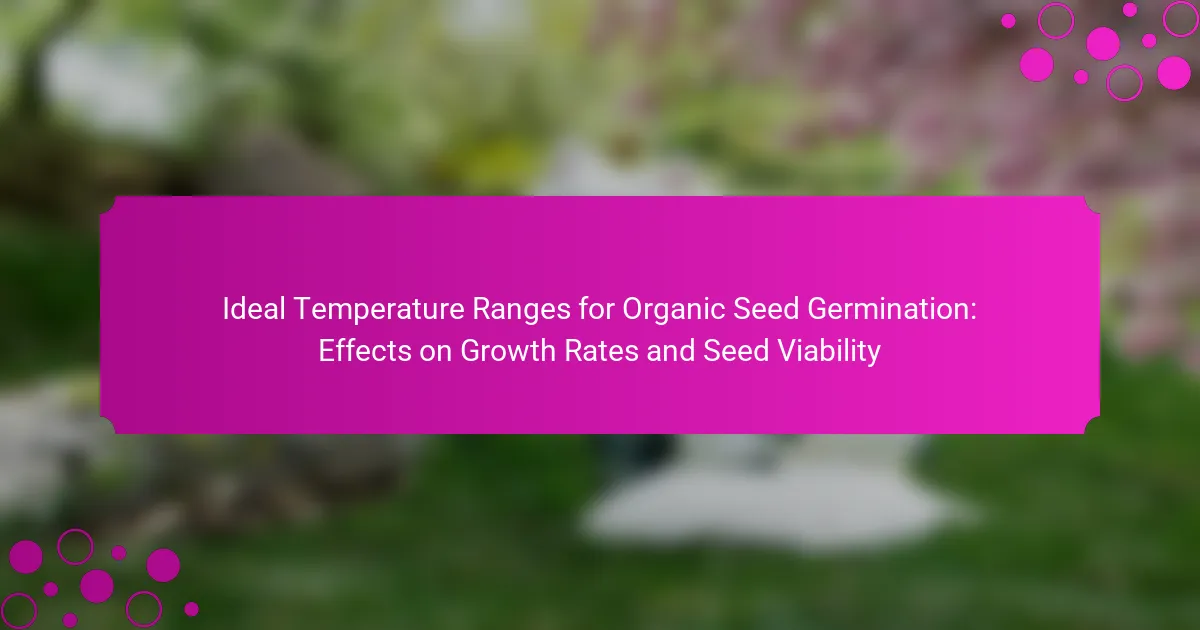
Ideal Temperature Ranges for Organic Seed Germination: Effects on Growth Rates and Seed Viability
The article focuses on the ideal temperature ranges for organic seed germination, emphasizing the critical role temperature plays in seed viability and growth rates. It identifies that most seeds germinate best between 65°F to 75°F (18°C to 24°C), with variations for warm-season and cool-season crops. The text highlights how optimal temperatures enhance metabolic processes, while […]
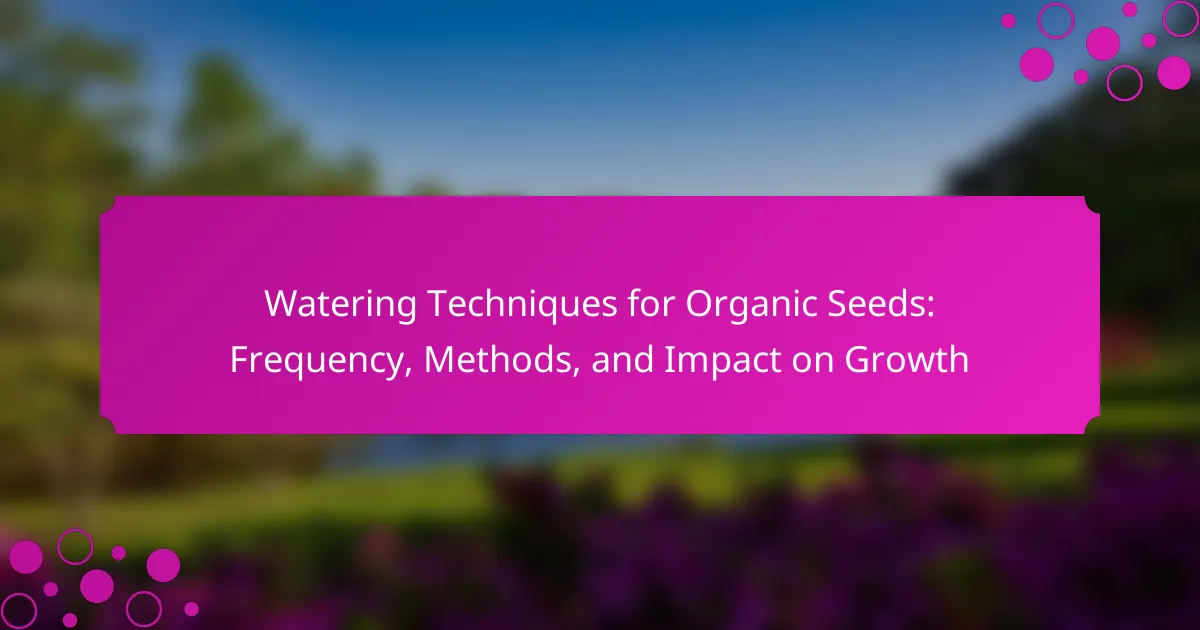
Watering Techniques for Organic Seeds: Frequency, Methods, and Impact on Growth
Watering techniques for organic seeds are essential for ensuring optimal germination and plant growth. Key methods include consistent moisture management and gentle application techniques, such as drip irrigation and soaker hoses, which effectively deliver water directly to the soil and reduce evaporation. Regular monitoring of soil moisture is critical, as both overwatering and underwatering can […]
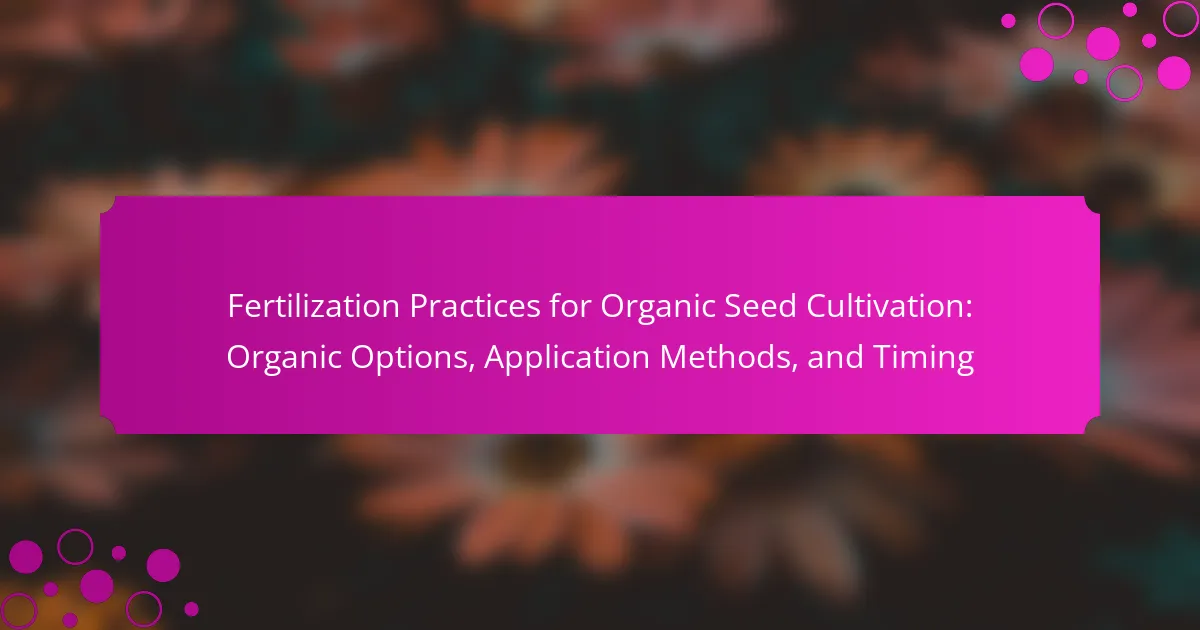
Fertilization Practices for Organic Seed Cultivation: Organic Options, Application Methods, and Timing
Fertilization practices for organic seed cultivation focus on enhancing soil fertility through natural inputs, including compost, green manures, and organic fertilizers. These methods improve soil structure and nutrient availability, supporting healthy plant growth while avoiding synthetic chemicals. The timing of fertilizer application is critical for maximizing crop yield and nutrient uptake, with research indicating that […]
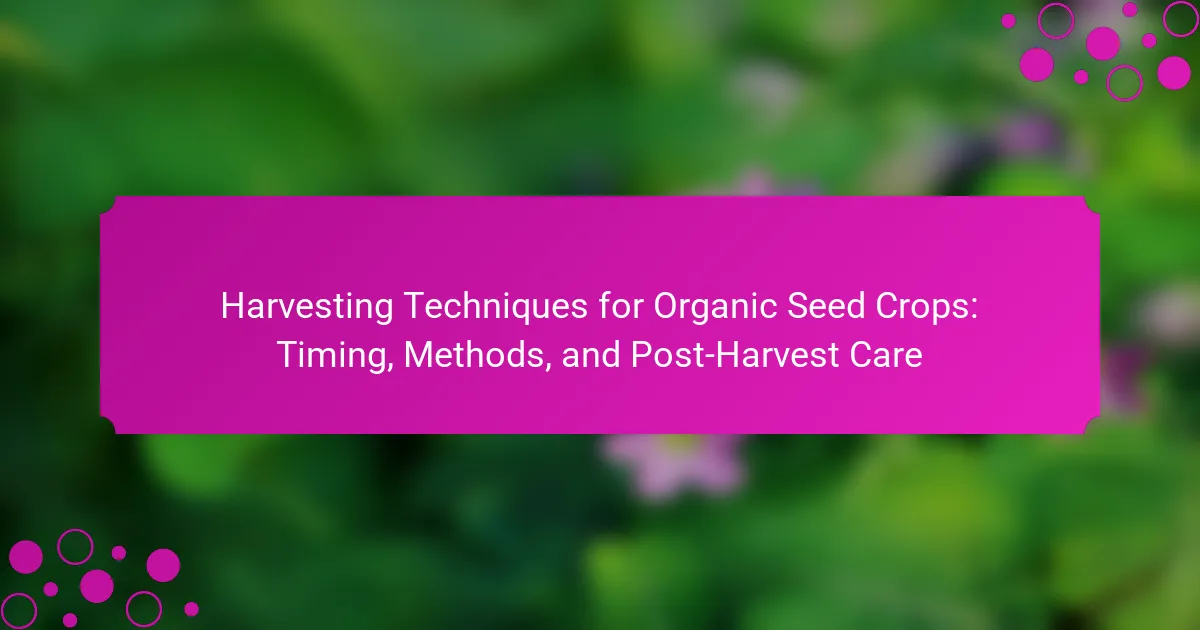
Harvesting Techniques for Organic Seed Crops: Timing, Methods, and Post-Harvest Care
Harvesting techniques for organic seed crops are critical for ensuring seed quality and viability. Key methods include manual harvesting, which allows for careful selection, and mechanical harvesting, suitable for larger areas but requiring equipment that minimizes seed damage. The timing of harvest is essential, as seeds should be collected at physiological maturity to optimize germination […]
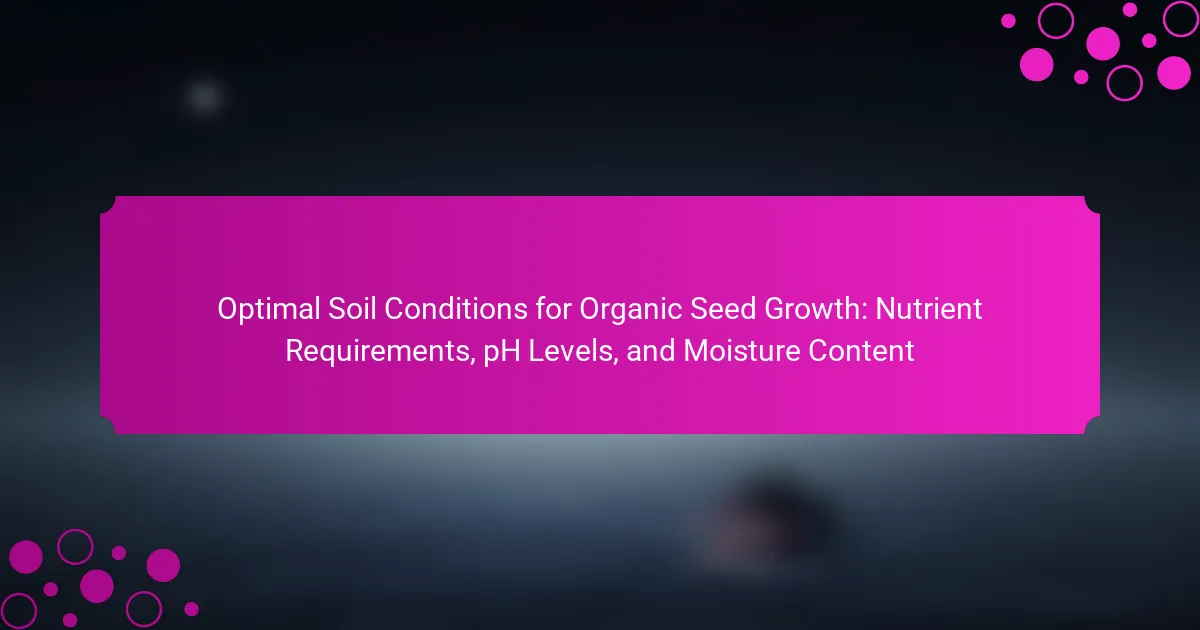
Optimal Soil Conditions for Organic Seed Growth: Nutrient Requirements, pH Levels, and Moisture Content
Optimal soil conditions for organic seed growth are essential for achieving healthy plant development. Key factors include well-draining soil, a pH range of 6.0 to 7.5, and consistent moisture levels between 50-70% of field capacity. These conditions enhance nutrient availability, microbial activity, and seedling vigor. Additionally, maintaining soil health through regular testing, organic matter incorporation, […]
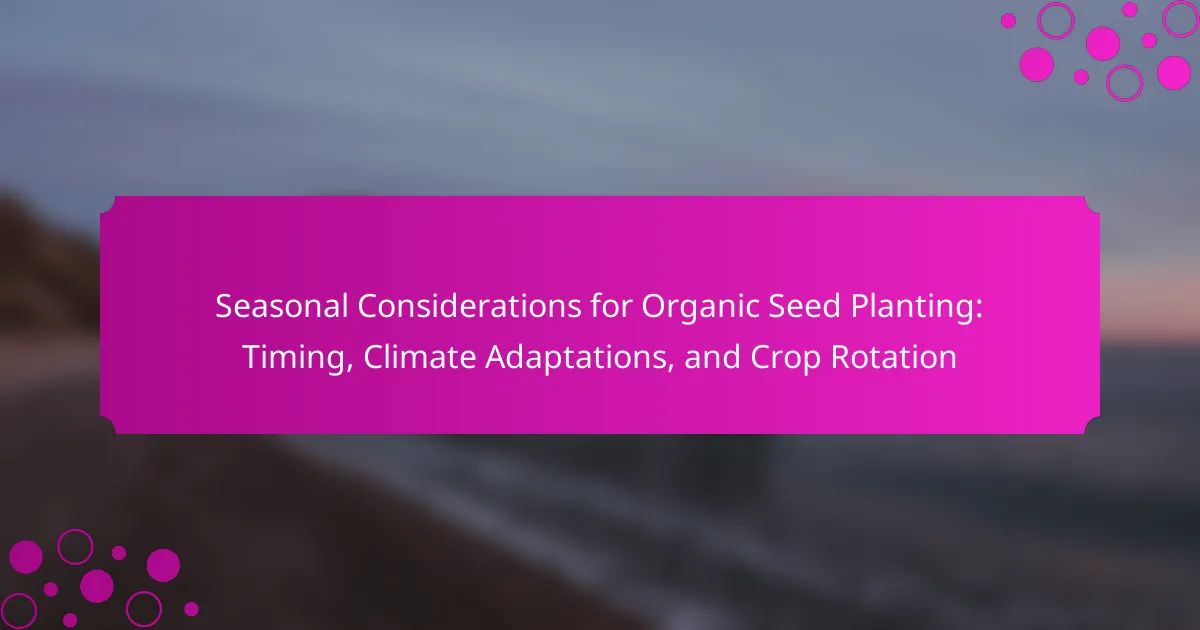
Seasonal Considerations for Organic Seed Planting: Timing, Climate Adaptations, and Crop Rotation
The article focuses on seasonal considerations for organic seed planting, emphasizing the importance of timing, climate adaptations, and crop rotation. Key factors include the specific planting windows for cool-season and warm-season crops, the impact of climate on seed germination and growth rates, and the necessity of monitoring soil temperature and moisture levels. Additionally, the article […]
